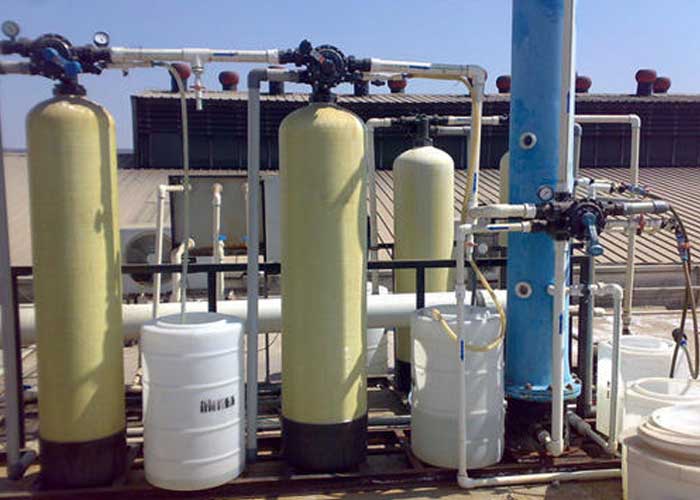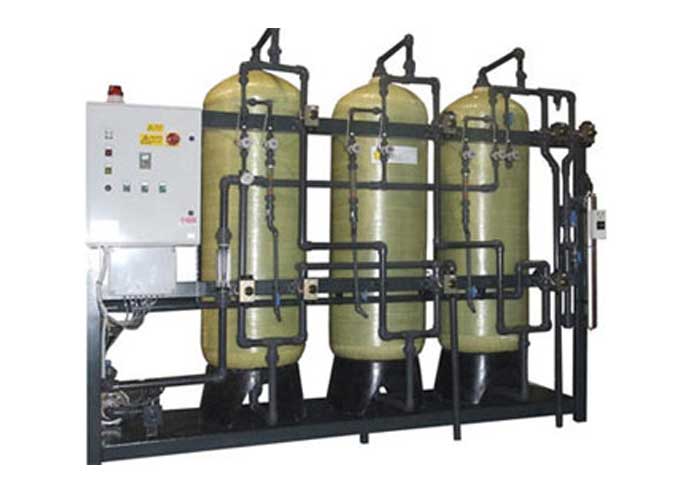DM is an acronym for demineralised water. Natural water contains ions that carry positive and negative charges, called anions. These minerals and salts can cause oxidation and scale formation in metals. DM plants are designed to remove these ions and produce mineral-free water. The process also allows certain minerals to pass through, making the finished product pH 7.0. However, DM plants are not perfect. For this reason, it is essential to know what exactly it is that a DM plant can do for you.
DM plants have two basic types: a single unit and a column. A mixed bed demineralisation plant uses a single ion exchange resin to treat water, and a single unit cycle process water through resins to remove cations. The second type, a supercharged mixed bed DM unit, cycles water in a dual-bed configuration. The resulting product has a high level of purity.
The DM water treatment process uses deionisation to remove dissolved minerals from the water. The natural water contains a high level of dissolved salts, anions (sulphate), and cations (iron, calcium, sodium, copper, and bromide). These dissolved salts are detrimental to metal oxidation, scaling, and corrosion. DM plants are highly effective in removing these dissolved salts, leaving the water ultra-pure.
An industrial DM RO water treatment plant has several advantages. It reduces scale and deposits in pipes and protects turbine blades from mineral deposition. Another advantage of this system is that it is highly efficient at cleaning up groundwater. Acroama is one of the most reputable names in the industry, and it is the best choice for industrial applications. The company offers a wide range of DM water plants.
What is Industrial DM RO Water Treatment Plant?

The DM unit is another type of industrial RO water treatment plant. The DM unit uses a combination of different ion exchange resins in a single ion-exchange column. The process is more complex, but the result is higher water quality. It prevents scale and corrosion in pipelines. It is also ideal for ultrapure water. Whether for industrial use or drinking, the DM plant will get the job done for you.

A DM plant is an industrial RO water treatment plant. These plants are used to treat groundwater. They are more efficient than dual-bed units and remove dissolved solids from the water. Some of the benefits of this DM plant are: They can reduce scale and sodium. This is the best way to ensure that your DM system is working. When selecting an Industrial DM RO Water Treatment Plant, choose one that best suits your needs.
DM plants are not just for drinking water. They also eliminate cations and ions in your wastewater. This prevents scale from forming in pipes. It also provides better water quality than distilled water. The DM system can be used in various industries. In this type of plant, the resins used are usually ion exchange resins. The mixed-bed type is more advanced and can eliminate dissolved solids.
A DM plant can be used for both industrial and laboratory use. It is a more complex system than a single-bed unit, so it is more expensive. An Industrial DM RO Water Treatment Plant is an investment in the future of your business. And your money is well-spent. The benefits of a DM Plant are numerous.
A DM plant has several advantages. It can clean a large volume of water in a short amount of time. The mixed-bed system is better than a single-bed system because it can remove dissolved solids at a higher rate. Moreover, it can reduce the scale buildup in your pipes. It can also improve the life of your boiler and other types of equipment.
The main benefit of a DM Plant is its ability to remove dissolved solids. It reduces scale buildup, prevents corrosion, and improves water quality. It also contains a buildup of calcium and magnesium in the turbine blades of air conditioning systems. Its efficiency depends on the amount of sodium used. It is also better for reducing acidity, and the acidic water it contains will have a better taste and smell.







































Share Post